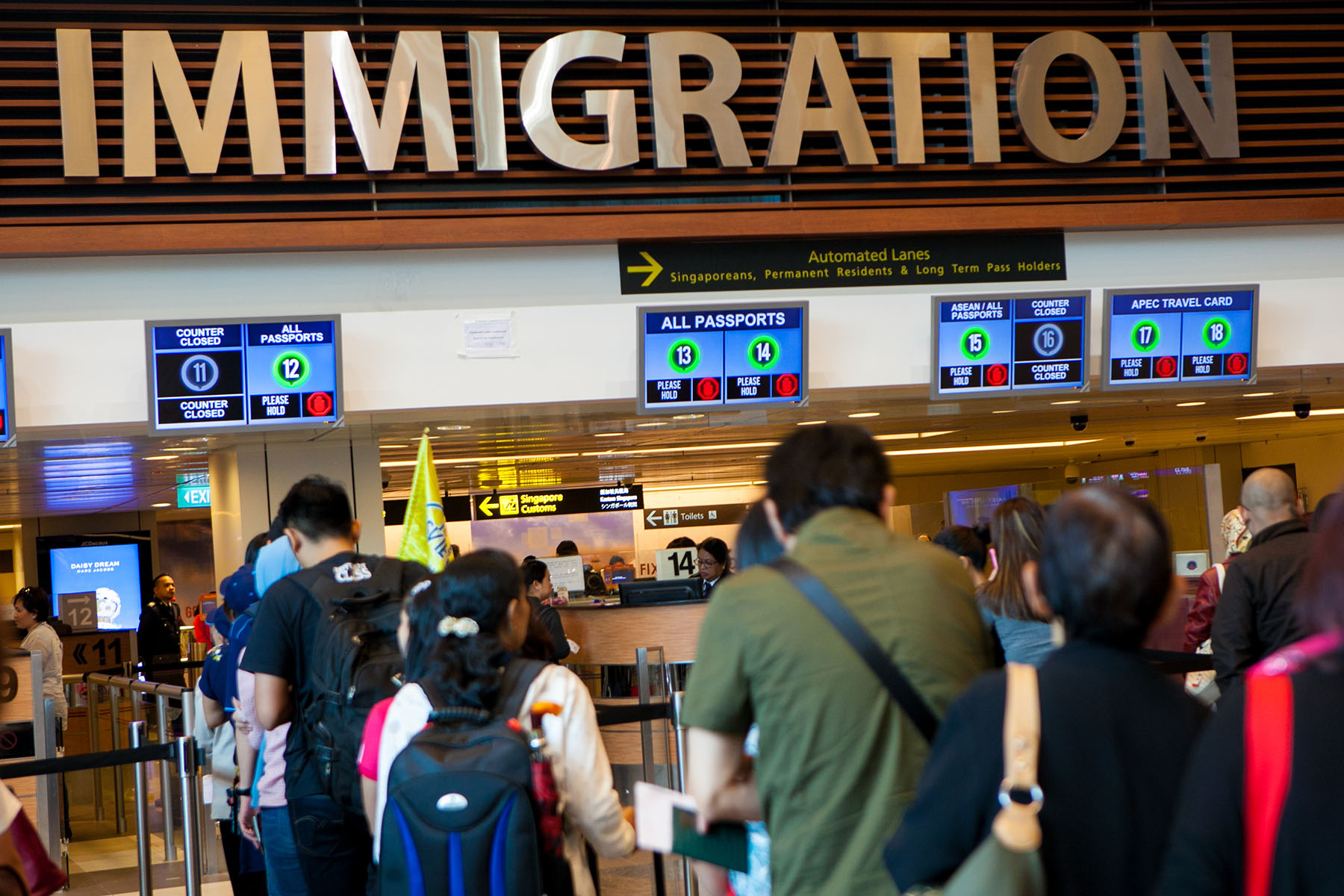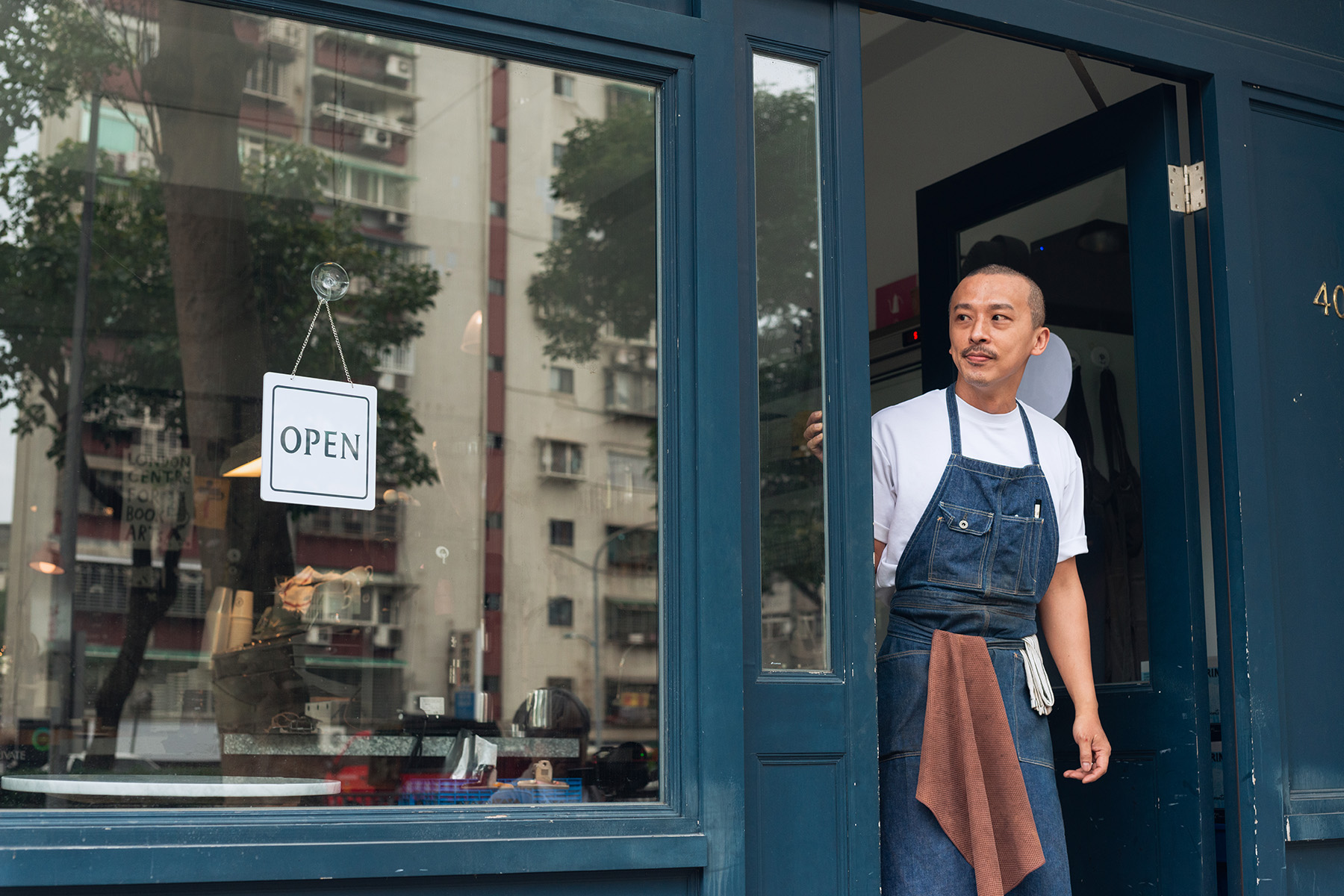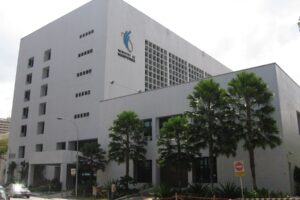All foreign residents and Singaporean citizens must have an identification number to live in the island state. Most expats will only need a Foreign Identification Number (FIN). Once they become permanent residents, they’ll need to apply for a National Registration Identity Card (NRIC).
Keep reading for key information about FIN and other ID numbers in Singapore:
ID numbers in Singapore
Singapore’s most important ID numbers are the FIN and the NRIC. These are necessary for all kinds of services, including paying taxes, opening a bank account, applying for social security, and registering for healthcare.

The Immigration and Checkpoints Authority (ICA) issues ID numbers in Singapore.
Expats and foreign residents must apply for their unique FIN number if they want to stay in Singapore for more than 30 or 90 days, depending on their nationality. The NRIC, colloquially known as IC, is mandatory for citizens and permanent residents over the age of 15.
What is a FIN number in Singapore?
FIN numbers are unique identification numbers of foreigners who are studying, working, retiring, or simply residing in Singapore. It consists of one letter, seven digits, and a final letter (e.g., M1234457A). The first letter refers to the FIN series; for example, people whose numbers start with an M entered Singapore on or after 1 January 2022.
Your FIN number is unique and stays with you for life. For instance, you might be in Singapore on a student visa. Once you graduate and a local company offers you a job, you must apply for a work visa. Although your residence status has changed, you’ll keep the same FIN number. That said, you can ‘lose’ your FIN number by becoming a permanent resident or citizen. In that case, you must apply for an NRIC.
Who needs a FIN number, and why?
Everyone over the age of 15 living in Singapore who is not a citizen or a permanent resident must have a FIN number, including:
- People on long-term stay visas
- International students
- Foreign workers
- Residents on a dependent’s pass
Those without this ID number risk deportation and a lifetime ban from the country.

One of the main purposes of this number is to set up a SingPass account. You can use this platform to access various government services online. It also links to your bank accounts and lets you sign documents digitally, register with a healthcare provider, and file income taxes.
What data does the ICA keep about me?
Along with the details of your planned employment or study degree in Singapore, a FIN number requires the following information:
- Valid ID (i.e., passport)
- Birth certificate
- List of countries in which you have previously lived
- Address and contact details
- Educational background
- Employment history
- Passport photo
FIN numbers are also linked to your financial information, such as your local bank accounts and tax records in Singapore.
Due to its importance, you should safeguard who can access your FIN number. You should only give it if required by the law or if it’s necessary to prove your identity. For example, landlords may ask for it when you rent an apartment or house, in which case it’s okay to show your ID card with your FIN number. However, some companies will try to access your FIN for a lucky draw, which you should refuse.
How to apply for a FIN number in Singapore
When you move to Singapore, you must apply for a visa. Once this application is approved, you’ll automatically receive your FIN number.
If you plan on working in the country, your employer must apply for a work visa on your behalf. The Ministry of Manpower (MOM) will send them your FIN number as part of the in-principle approval letter. In all other circumstances (including when you’re studying in Singapore or living there as a dependent), you must complete the application process yourself.

Once you have your FIN number, you can apply for a Long-Term Visit Pass (LTVP), Singapore’s ID card. If you were issued your LTVP before February 2023, this will be a physical card. After that, you can only get a digital LTVP, viewable on the SingPass app or downloadable from MyICA or the FileSG website.
LTVP applications are generally processed within six weeks and cost S$30.
What is an NRIC number in Singapore?
NRIC numbers are the equivalent of FIN numbers in that they are unique identification numbers of Singaporean citizens and permanent residents.
The number has the same format, consisting of one letter, seven digits, and a final letter (e.g., S1234567A). The first letter is either an S (if the holder was born before 2000) or a T (if they were born after that year). Apart from the status, the number also shows the year of birth for the residents born after 1968.
Like the FIN number, your NRIC is unique and stays with you forever.
Who needs an NRIC, and why?
All Singaporean citizens and permanent residents over the age of 15 must have an NRIC. Those failing to get one are in breach of the National Registration Act and risk a fine of up to S$5,000, a five-year prison sentence, or both.
One of the main purposes of this number is to set up a SingPass account. You can use this platform to access various government services online. It also links to your bank accounts and lets you sign documents digitally, register with a healthcare provider, and file income taxes.
The NRIC allows you to access Singapore’s social security benefits (Central Provident Fund – CPF) and the public health insurance programs MediSave and MediShield Life.
What data does the ICA keep about me?
As well as your financial information, your NRIC number is linked to your:
- Full name
- Date and place of birth
- Gender
- Race
- Passport photo and biometric data
- Address and contact details
- Educational background
- Employment history
Singaporeans may change their race on their NRIC twice, once before and once after turning 21. Citing the government website, “a child’s race can follow either parent’s race or an acceptable hybrid race. A Singapore citizen may also choose a double-barrelled race (i.e., comprising both parents’ races).”

It is very common to provide your NRIC in Singapore, as it is the country’s main form of ID. However, since it is linked to so much personal data, you should safeguard who can access your NRIC and only give it if required by the law or if it’s necessary to prove your identity. Legally, organizations cannot collect, use, or disclose a person’s NRIC without their permission.
How to apply for an NRIC in Singapore
Citizens and permanent residents will need to apply for their first NRIC when they turn 15.
You will receive a notification to apply for the identity card online. You can then make an appointment to submit your biometric data, or, if you’re attending a government or government-aided school, submit your data through there. Once the application is processed, you can pick up your identity card at your school or the Citizen Services Centre in the ICA Building.
You must re-register twice (at ages 30 and 55) to ensure your photographic ID remains up to date (unless you’ve been issued a replacement IC within the last 10 years). You’ll receive a letter by mail inviting you to renew your NRIC. If you reside overseas during the re-registration period, you must re-apply within one year of your return to Singapore.
Applications are typically processed within seven working days, though it may take longer during peak periods. Once ready, you’ll be notified by SMS and email. You can then schedule an appointment to collect your IC within three months of the notification.
Unlike the FIN number, the NRIC is not fully digital. As such, citizens and permanent residents still have a physical ID card. This costs S$10 for citizens and S$50 for permanent residents.
What to do if your ID card is damaged or lost?
If your IC is damaged or defaced, you can use the ICA’s e-Service to request a replacement. You’ll also have to pay a S$60 fine.
If you’ve lost your ID card, you must report it within 14 days using ICA’s e-Service. You can use the same platform to replace your IC. If you’re residing overseas at the time of the loss, you must report it within 14 days and replace your card the next time you return to Singapore (using the same e-Service). It’s worth noting that you don’t have to report a lost ID card to the police.
Losing your NRIC will result in a fine of S$100 for the first loss and S$300 for any subsequent losses.
Business ID numbers in Singapore
In the past, businesses in Singapore had several different ID numbers, including a Business Registration Number, a Central Registration Number, an Employer Reference Number, and a Tax Reference Number. In 2009, the Unique Entity Number (UEN) was introduced to streamline the system.

Several different agencies have the power to issue a UEN. For example, the Accounting and Corporate Regulatory Authority (ACRA) issues UENS to limited partnerships, the Ministry of Communications and Information (MCI) takes charge of news bureaus, and the Monetary Authority of Singapore (MAS) gives UENs to financial organizations.
The UEN consists of nine or 10 numbers and letters, depending on when it was issued. Old UENs usually have eight or nine numbers, plus a letter (e.g., 12345678X or 199612345X). New UENs typically start with an R, S, or T, followed by two numbers of the year it was issued, two letters indicating the entity type, four random numbers, and one random letter (i.e., S23PG1234X).
You can check the UEN of any entity in Singapore on the government’s government’s searchable database.
Some corporations also need a Goods and Services Tax (GST) number. GST is the local equivalent of VAT or sales tax. Small businesses do not need to register for a GST number. However, a company with a yearly turnover of at least S$1 million does. Although GST is a self-reported tax, there are hefty fines for any companies that are audited and discovered to be evading it.
How to apply for a UEN in Singapore
Most businesses in Singapore will register with ACRA, which will then issue a UEN automatically. You can also use the government’s BizFile+ website to register your new company. For sole proprietors, partnerships, and LLPs, this will cost S$115 for a single year or S$175 for three years. You’ll need to renew your registration after that period elapses.
Companies must also pay a one-off registration fee of S$315.
You’ll be given a random business ID number. However, if you’re unhappy with the number, you can change it by paying a customized Special UEN (SUN) fee. You can do so in your BizFile+ account.
Prices of this vary, and customization is somewhat limited; you won’t be able to choose an entirely new code. However, if you want a number with a repetitive pattern or one that ends with three identical digits (e.g., 202412333C), you’ll pay around S$1,000. If you’re looking for a SUN that includes the number 8 (a lucky number in Chinese culture), you can expect to pay a premium of about S$3,000.
Useful resources
- Central Provident Fund – official website for social security in Singapore
- Immigration and Checkpoints Authority – official government website of the agency responsible for visa and immigration in Singapore
- SingPass – online platform to access government services online





